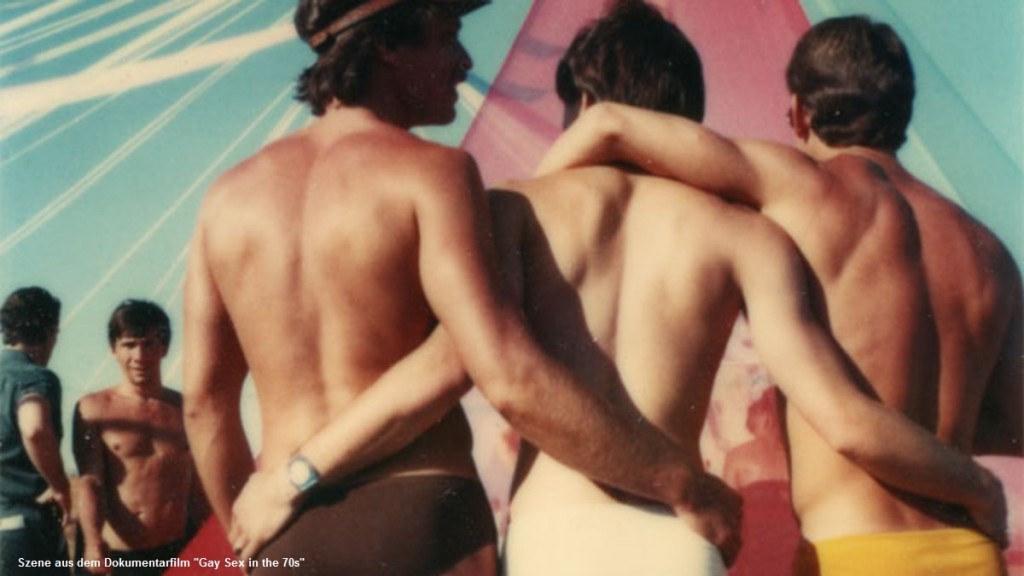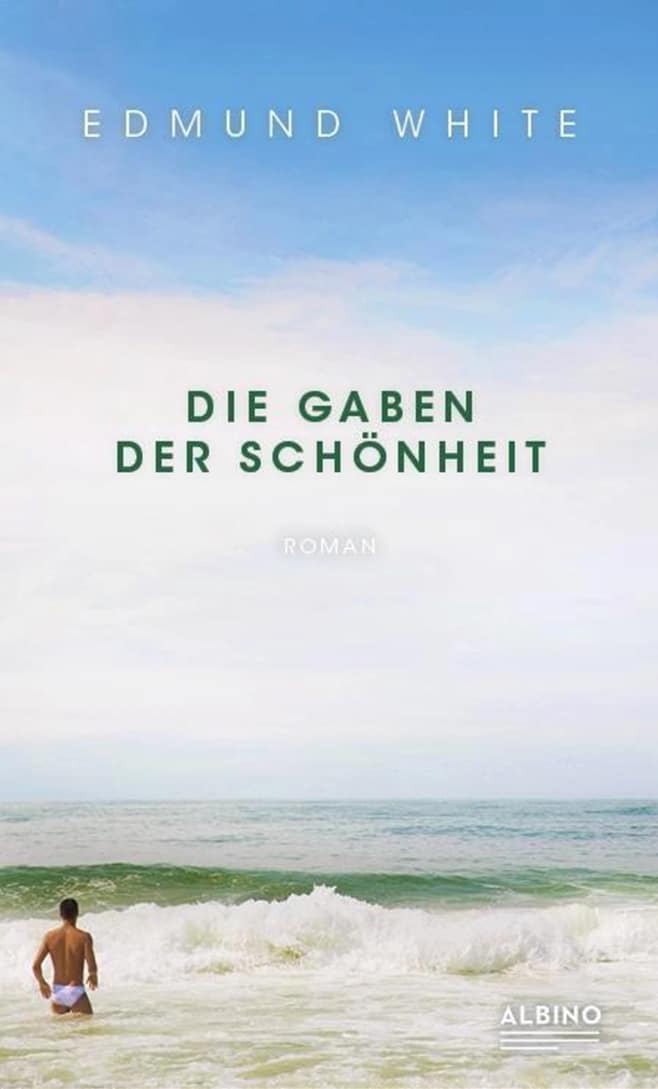In his new novel "The Gifts of Beauty", Edmund White tells the story of the life of a gay supermodel caught between the promises of the fashion world and the threat of the emerging AIDS crisis.
To get out of the French provinces, to get out of his family's poor circumstances, Guy has to do nothing other than put on his face. The ticket to a better life full of luxury, constant admiration and adoration is, so to speak, laid in his cradle.
A good gene pool has turned Guy into a beauty that conforms to universal ideals and is therefore versatile. With his perfectly proportioned face, his not too muscular but clearly defined body, almost anything can be marketed: Shaving lotion and swimwear, luxury wristwatches and designer suits.
Guy is one of the few men to make it into the top league of the modelling industry. What's more, he even manages to stay there for an unexpectedly long time. In his early 40s, he is still considered to be in his mid-20s thanks to his good genes and a strict diet and body care regime.
Chronicler of everyday gay life
Edmund White, born in 1940, is certainly one of the greatest gay US authors of his generation and, as a novelist, is also an outstanding chronicler of everyday gay life in the USA.
It is no coincidence that he has made a Frenchman his hero (or rather anti-hero) in "The Gifts of Beauty". White himself lived in France for many years and worked there as a correspondent for Vogue.
White knows from his journalistic experience what makes the fashion world tick, what lies behind the glossy photos and what goes on in the modelling agencies and behind the scenes of fashion shows. In addition, gay models George Miscamble and Brad Gooch have also provided him with insider experiences, as can be seen from the acknowledgements at the end of the book.
However, "The Gifts of Beauty" is by no means a documentary novel; rather, White uses the background information to underpin the almost fairytale-like rise of his model with so many discreetly interspersed details from reality that the story remains credible. This Guy is unmistakably a modern Dorian Gray and, like Oscar Wilde's famous character, he hardly seems to age at all.
And so Guy moves through the atmospherically accurate backdrops as a character who is sometimes difficult to grasp but nevertheless very lifelike: be it the superficial world of fashion, subject to the hard-hitting mechanisms of commerce; the closed cosmos of the very rich and beautiful and their exclusive parties in New York City or the hustle and bustle of the gay jet set in the summer houses on Fire Island.
"They don't even really know what you get it from, do they? Poppers, moustaches? Pork?"
The first cases of Aids in the early 1980s, when the main part of the novel is set, dampen the festive mood there somewhat, but there is still hope that the haunting will be over by next summer.
In his novel "Abschiedssymphonie" (1997), White - himself HIV-positive and once a co-founder of the first gay AIDS organisation - described in great detail how the epidemic raged at the time, particularly in New York City, the swathes of destruction it left behind in the gay scene and the despair, but also the anger and commitment it triggered.
In "The Gifts of Beauty", White focuses the Aids drama on the death of Guy's generous mentor Fred, a film producer who only leaves his wife and children in old age in order to live out his gayness - and is one of the first to contract the mysterious "gay disease" (which is therefore still called GRID - Gay Related Immune Deficiency). Fred's only option is to resort to sarcasm ("They don't even really know what you get it from, do they? Poppers, moustaches? Pork?").

At the same time, he's also business-mindedly fantasising about a box-office Hollywood drama. ("I should make the first Aids film - something really romantic, with two hot young macho guys who die ... We could take a straight guy, someone with eight or nine children. The mask paints black marks on his skin. And the Oscar goes to him for kissing a man in front of the camera)
Guy proves to be a reliable friend with integrity, right up until Fred's death. Or is his loyalty just the quid pro quo for the million-dollar mansion on Fire Island, which he quickly signed over? Guy remains an elusive character to the end.
Whether the sexually excessive relationship with the Argentinian art historian Andrés, whose love for Guy lands him in prison, or the liaison with the student Kevin, the gay half of an identical pair of twins from the American provinces - Guy's affection and commitment always prove to be self-serving and full of calculation. Sometimes because it promises financial advantages or - through sexual exclusivity, i.e. monogamy - protection from the still uncontrollably raging virus.
The ambivalences of his characters are equally reflected in White's attitude as a narrator: he develops the psychograms of these men entangled in sexual and amorous dependencies with elegance and stylistic confidence, sparing neither humorous nor sarcastic remarks in order to casually throw in clever and pointed sentences in the next sentence.
The fact that Edmund White is barely recognised by a wide audience and national media, even in the USA (and in Germany anyway), is regrettable and actually a shame, but unfortunately hardly surprising. An author who can philosophise just as wittily over several pages about the advantages of the active or passive role in anal intercourse as he can about the transience of beauty is still suspect to many a critic and bookseller.
Edmund White: "The Gifts of Beauty". German by Peter Peschke. Albino Verlag, 346 pages, hardback, 22.90 euros.










